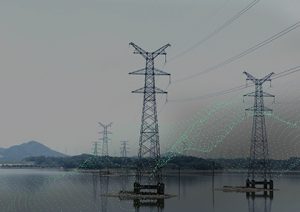Risk of rising seas has Tuvalu going green
By Reuters
NFPA 70e Training - Arc Flash
Our customized live online or in‑person group training can be delivered to your staff at your location.

- Live Online
- 6 hours Instructor-led
- Group Training Available
Tuvalu, a string of coral atolls whose highest point is 4.5 meters (15 ft) above sea level, estimates it would cost just over $20 million to generate all electricity for its 12,000 people from solar and wind power and end dependence on diesel.
"We look forward to the day when our nation offers an example to all — powered entirely by natural resources such as the sun and the wind," Kausea Natano, minister for public utilities and industries, said in setting the 2020 target.
Tuvalu and many other low-lying atolls in the Pacific, the Indian Ocean and the Caribbean fear that rising sea levels could wipe them off the map. They want governments to agree a strong new U.N. deal in Copenhagen in December to slow climate change.
Natano said in a statement that Tuvalu's own efforts to curb the islanders' tiny greenhouse gas emissions "will strengthen our voice" in the negotiations.
A first $410,000 solar system on the roof of the main soccer stadium in the capital, Funafuti, has been generating 5 percent of electricity for the town since it was installed in late 2008.
The installation was led by Japan's Kansai Electric Power Co. backed by Tokyo Electric Power Co. Both are members of the e8, an international non-profit organization of 10 utilities from the Group of Eight industrialized countries.
G8 leaders at a recent summit in Italy promised to help the poor cope with climate change, but have not yet said how much cash or technology they will provide.
"We are hoping to secure assistance from our traditional donor partners and any other funding assistance to achieve (the) ultimate goal" of 100 percent renewable power, Natano said.
Tuvalu says that "king tides" whipped up by more powerful cyclones are already bringing salt water onto crops.
Sea levels rose 17 cm (6 inches) in the 20th century and the U.N. Climate Panel estimated in 2007 they could rise by another 18-59 cm by 2100, and perhaps even more if a thaw of Greenland or Antarctica accelerates.
Tuvalu, a group of atolls covering 26 sq km, aims to expand the e8 project from 40 to 60 kilowatts and extend solar power to outer islands, starting this year with an $800,000 solar power system for a school in Vaitupu funded by the Italian government.
"The plight of Tuvalu versus the rising tide vividly represents the worst early consequence of climate change," said Takao Shiraishi, general manager of Kansai Electric Power Co.
The islands, halfway between Australia and Hawaii, would keep generators as back-up sources of power. Tuvalu's average fuel consumption is 5,000 liters of imported diesel per day.
Tuvalu's annual emissions of the heat-trapping carbon dioxide, the main greenhouse gas from burning fossil fuels, are just 0.4 ton per inhabitant against more than 20 per American.











